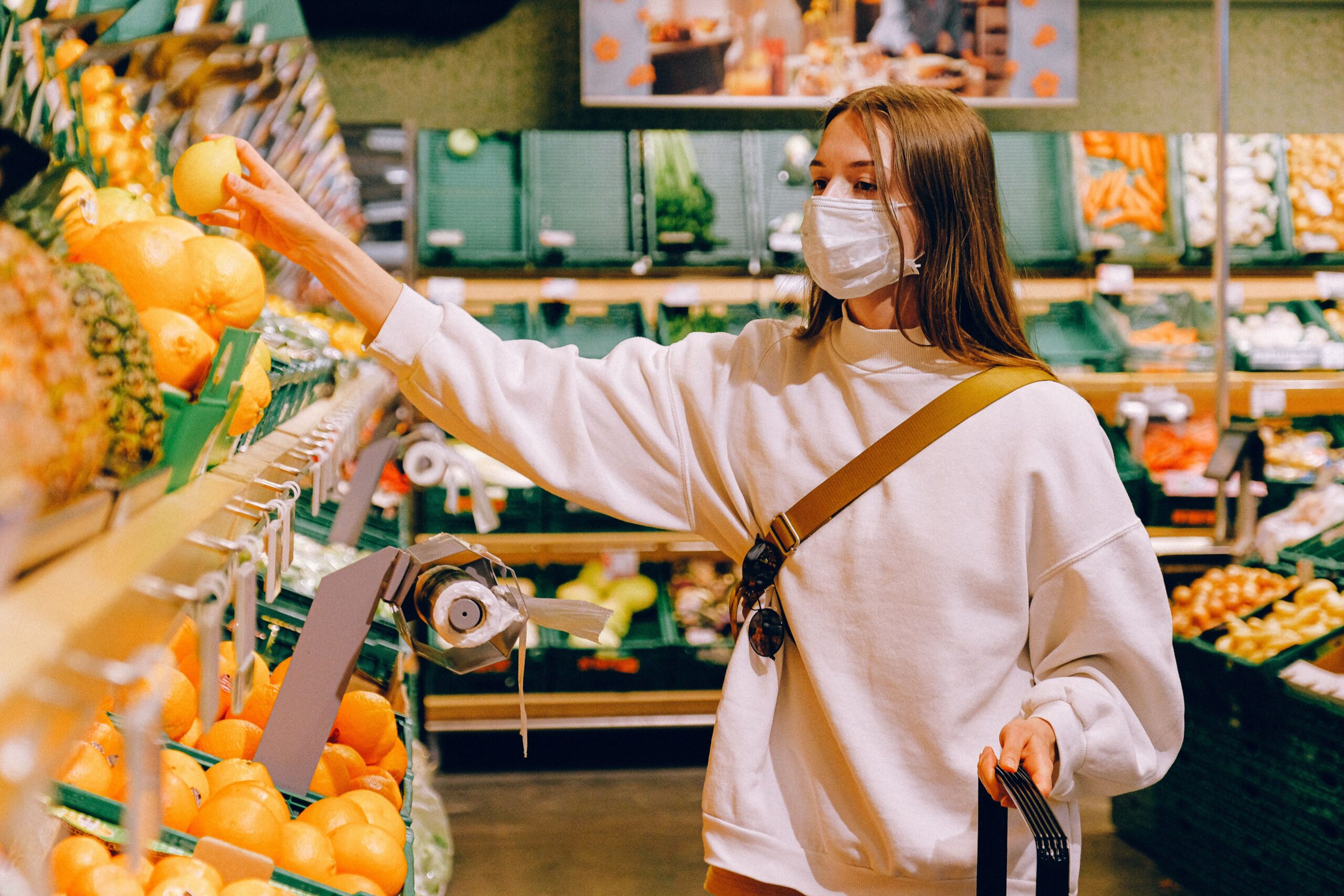Introduction
All of us have been significantly impacted by the COVID-19 crisis. Most of us have experienced significant changes in how we socialize, work, and educate our children. Not only are our behaviors affected by the crisis, our way of viewing the world is also affected during this time of extreme change. The goal of this article is to advise defense attorneys and corporate clients about the impacts of COVID-19 on jurors’ perceptions of corporations in general as well as on jurors’ perceptions of specific industries and entities. This article reports survey results obtained from a national sample of jury-eligible respondents regarding shifts in feelings toward a variety of corporations and industries. It concludes with key points for defense counsel and corporate clients to consider in interpreting these findings and in their efforts to promote favorable case outcomes.
Results
Courtroom Sciences’ research team surveyed 527 jury-eligible individuals from venues across the nation during the COVID-19 pandemic. The survey assessed the extent to which respondents’ feelings regarding a variety of businesses and entities have changed as a result of the COVID-19 crisis. Respondents were sampled from 11 different states and were generally representative of typical jurors in their venue. Approximately 53% of the respondents were female. The majority of respondents (70%) identified as White/Caucasian, followed by 16% Black/African-American, 10% Hispanic/Latino, 2% American Indian/Alaska Native; 1% Asian/Asian-America; and 1% “Other.”[1] When asked to indicate their political ideology, one-third (33%) of jurors identified as liberal; another 33% identified as conservative; and the remaining 34% said that they were “middle of the road” or political moderates.
Survey results are summarized in the table below. Although many participants reported no attitude changes, some substantial attitude shifts were observed across industries. Most notably, the majority of respondents indicated that their feelings about physicians, nurses, and hospitals have become more positive as a result of the COVID-19 pandemic. Additionally, the data revealed a significant shift in feelings about transportation industries that are focused on product delivery, with over one-third (39%) of respondents reporting more positive feelings towards trucking companies and nearly one-quarter (23%) reporting more positive feelings towards railroads.
The extent and valence of attitude change towards retailers depended on the type of retailer specified. Across retailers, respondents were most likely to perceive grocery stores more favorably, with 35% reporting more positive feelings because of the COVID-19 crisis and only 14% reporting more negative feelings toward grocery stores. In comparison, almost one-quarter (24%) said that their feelings toward Walmart have become more negative during the COVID-19 crisis and 21% said that their feelings toward Walmart have become more positive. Perceptions of Amazon were similarly split, with 24% reporting less favorable feelings and 29% reporting more favorable feelings.
As a result of COVID-19, how have your feelings changed, if at all, regarding the following businesses or industries?
| More Favorable | Less Favorable | No Change | |
| Large corporations | 9% | 24% | 67% |
| Small businesses | 64% | 3% | 33% |
| Trucking companies | 39% | 4% | 57% |
| Railroads | 23% | 3% | 74% |
| Auto manufacturers | 14% | 9% | 78% |
| Oil & gas companies | 15% | 9% | 75% |
| Pharma companies | 16% | 29% | 55% |
| Physicians | 57% | 8% | 35% |
| Nurses | 65% | 4% | 31% |
| Hospitals | 55% | 11% | 34% |
| Nursing homes | 34% | 22% | 44% |
| Cruise lines | 4% | 30% | 66% |
| Grocery stores | 35% | 14% | 49% |
| Walmart | 21% | 24% | 54% |
| Amazon | 30% | 24% | 246% |
| People who file lawsuits | 6% | 74% | 20% |
Results suggest that most jury-eligible adults are likely to show support for small businesses during this time, as 64% said that their feelings about small businesses have become more favorable. On the other hand, only 9% reported more favorable feelings about large corporations and 24% said that their feelings about large corporations have become more negative. Although most respondents (74%) said that their feelings about plaintiffs or “people who file lawsuits” has not changed as a result of the COVID-19 crisis, 20% said that their feelings towards plaintiffs have become more negative since the pandemic.
Discussion
Our results demonstrate significant shifts in jurors’ perceptions of certain companies and industries because of the pandemic. These shifts may be particularly advantageous for counsel representing defendants in the healthcare or transportation industries. Specific attitudes are much more powerful predictors of juror verdict preferences compared to juror demographics; therefore, defense counsel might reasonably assume that a juror reporting more favorable feelings about physicians and hospitals will be favorable in a medical malpractice case. Importantly, though, predicting juror decisions remains a complex task, and defense counsel will face additional challenges in trying cases in the COVID and post-COVID era. We offer the following key points and observations for defense counsel to consider in interpreting the current results and promoting favorable case outcomes.
Juror Polarization
More extensive analyses of respondents’ attitude shifts across various companies and industries suggest that these shifts are largely attributable to polarization rather than to an extreme change from one end of the spectrum to another. For example, most of the participants who reported more positive feelings about the trucking industry already had somewhat positive or at least neutral feelings about the trucking industry prior to the COVID-19 crisis.[2] Similar trends were observed in participants’ attitude shifts regarding large corporations, small businesses, and people who file lawsuits. The lesson is that strong pro-plaintiff jurors pre-COVID will continue to be strong pro-plaintiff jurors post-COVID, and the same pattern will occur for strong pro-defense jurors. It is the “middle of the road” jurors who are the primary targets for true attitude change that can affect litigation outcomes.
Feelings about Large Corporations and Plaintiffs
More than one-quarter of respondents reported feeling more negatively toward large corporations in general as a result of the pandemic. This is a puzzling finding, as most large corporations cannot be directly implicated in contributing to the introduction or spread of COVID-19 within the U.S. These findings are likely partially attributable to polarization such that participants who already had negative attitudes towards large corporations have become even more anti-corporate; large corporations are also convenient scapegoats. At the same time, a smaller but still significant percentage of survey respondents (20%) reported more negative feelings towards those filing lawsuits.
The same strategies for identifying favorable and unfavorable defense jurors still apply. Jury selection will largely remain a “de-selection” process focused on identifying and eliminating the most unfavorable jurors; yet counsel should pay special attention to thoroughly rehabilitating anti-litigation jurors. In the current highly polarized and politicized environment, it will be critical for counsel to seat one or more confident pro-defense jurors with strong leadership potential. It also should be noted that negative sentiments towards large corporations in general tend to predict sentiments towards specific companies. Aside from key industries that have been critical during the pandemic (e.g., healthcare, transportation, and other industries specifically catering to consumers’ needs during this time), most jurors have not formed strong opinions about specific companies and thus tend to view any given corporate defendant either negatively or positively based on their view of Corporate America as a whole.
Corporate Behaviors and Responses to the COVID-19 Crisis
Benefits of coronavirus-related attitude shifts may be easily undermined by well-executed reptile tactics that show the jury how a corporate defendant broke its own safety rules. In response to the pandemic, many companies have released official communications and statements touting their commitment to employee, consumer, and public safety. Although well intended, these communications typically include language that establishes unattainable safety standards and rules, which dramatically increases a company’s susceptibility to reptile attacks in litigation. Such communications must be carefully crafted to demonstrate that a company indeed cares about health, safety, and well-being without raising the legal standard for corporate conduct.
Corporate defendants also should be prepared to show that specific actions have been taken in response to the COVID-19 crisis. Additional survey data indicate that jury-eligible participants are particularly concerned with corporations’ treatment of employees during this time. Specifically, participants wanted to see companies promise to rehire laid off/furloughed employees, offer additional health benefits to employees, and cut pay for corporate executives.[3]
The Importance of Witness Testimony
Although it is helpful for counsel to demonstrate pride in representing corporate defendants during the opening statement, our research indicates that many jurors are likely to question a “good company story” that is solely delivered by defense counsel. Rather, jurors have indicated that they would be much more convinced if fact witnesses testified about a company’s character, culture, and measures taken to support employees and consumers during the pandemic. Thus, either past or current employees (in good standing) as well as Corporate Representatives are best suited to tell the “good company story” at trial.
Witness preparation for deposition and for trial is always important but is even more so now given defendants’ increased susceptibility to reptile approaches as well as the additional stress that witnesses are experiencing due to the pandemic. The process of testifying during a deposition or at trial has also changed. It will be critical to assess key fact witnesses from a psychological perspective and evaluate each witnesses’ capabilities in terms of their resiliency to plaintiff reptile approaches and ability to educate the jury if testifying at trial. A tailored approach to training for each witness can then be developed and executed to promote favorable case outcomes.
Conclusion
Current results indicate that the pandemic has catalyzed significant shifts in attitudes towards various companies and industries among many jury-eligible adults. Such shifts may be either beneficial or detrimental to defense counsel depending on the specific case and entities involved. However, counsel and clients should consider factors beyond demonstrated attitudinal shifts. In particular, counsel and clients should be aware of the implications of juror polarization, increased susceptibility to reptile attacks, and challenges that fact witnesses are experiencing during this time that may affect their performance at deposition or at trial.
A qualified Litigation Consultant can assist defense counsel and clients in navigating new and unique issues the Defense Bar will face in the midst and aftermath of the COVID-19 crisis, and in ultimately promoting favorable case outcomes. This can be accomplished through witness assessment and tailored training; pre-trial research; advisement on communications to stakeholders, consumers, and the general public; and strategic jury selection.
Author bios:
Dr. Lorie Sicafuse is a Litigation Consultant at Courtroom Sciences, Inc., a full-service national litigation consulting firm. Her grant-funded doctoral research examined jurors’ perceptions of witnesses, susceptibility to bias, and attributions of blame. Dr. Sicafuse has authored over twenty peer-reviewed publications appearing in academic journals and edited volumes. At Courtroom Sciences, Dr. Sicafuse applies her expertise in attitude change, information processing, and research methods to maximize the likelihood of favorable trial outcomes. Her knowledge of psychological research informs the wide range of services she provides, which include witness training, pre-trial research, jury selection, venue attitude research, and post-trial interviews. Dr. Sicafuse can be reached at lsicafuse@courtroomsciences.com.
Dr. Melissa Loberg, Litigation Consultant at Courtroom Sciences, Inc., uses her expertise in psychology to provide attorneys and their clients with a tactical advantage throughout the litigation process. She has been conducting research, speaking, teaching and publishing articles in the area of psychology and the law for the past fifteen years. Dr. Loberg applies her expertise in research methodology to the planning and implementation of focus group and mock trial studies, as well as the development and analysis of jury supplemental questionnaires and post-verdict juror interviews. Additionally, she applies her training and education in Clinical Psychology to the preparation of witnesses in anticipation of both deposition and trial. Dr. Loberg provides CLEs to attorneys across the nation regarding science-informed jury selection, the ability of mock trial research to inform settlement decisions, and neuropsychological approaches in witness training. Dr. Loberg can be reached at mloberg@courtroomsciences.com.
[1] Please contact the authors for more detailed information regarding participant demographics.
[2] Please see https://www.courtroomsciences.com/blog/the-csi-blog-1/post/the-politicization-of-the-trucking-industry-154 for more information.
[3] Please contact the authors for more details on survey results regarding reactions to specific corporate responses to COVID-19.

Be confident in achieving superior litigation outcomes. CSI has the expertise, track record, and capabilities to help you win.



